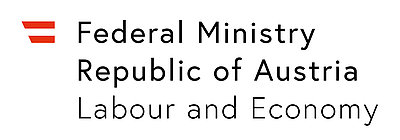
The FIW - Research Centre International Economics (https://www.fiw.ac.at/) is a cooperation between the Vienna University of Economics and Business (WU), the University Vienna, the Johannes Kepler University Linz, the University of Innsbruck, WIFO, wiiw and WSR. FIW is supported by the Austrian Federal Ministries of Education, Research and Science (BMBFW) and of Labour and Economy (BMAW).
FIW Statistics
Current FIW Statistics on International Trade, a clear and graphical overview.
Seminar in International Economics in Summer Term 2016
The seminar is part of the activities of FIW, the Centre of Competence in International Economics. Regular lecture series on current issues in international economics.
Location: wiiw Wiener Institut für Internationale Wirtschaftsvergleiche, Rahlgasse 3, 1060 Wien
The Gender Wealth Gap in Europe
Thursday, 23 June 2016, 4pm
wiiw Rahlgasse 3, 1060 Vienna, Library (2nd floor)
Alyssa Schneebaum
(with Miriam Rehm, Katharina Mader and Katarina Hollan)
Vienna University of Economics and Business (WU)
Abstract
This paper studies the gap in wealth holdings between male and female single households using 2010 Household Finance and Consumption Survey data for 10 European countries. The analysis employs OLS and quantile regressions and ?nds that there is no wealth gap across most of the wealth distribution, but that male households have between 30% and 76% more net wealth than female households at the very top of the distribution. Differences in labor market characteristics, in particular earnings and the ownership of business assets, explain much of the difference in the gender wealth gap between the 70th and 90th percentiles.
Keywords: Gender; Wealth; Wealth Gap; Distribution
JEL Codes: D31; J16; E21.
Recent Development of International Trade Theory and Some of its Consequences
Thursday, 19 May 2016, 4pm
wiiw Rahlgasse 3, 1060 Vienna, Library (2nd floor)
Yoshinori Shiozawa
Osaka City University, Japan
Abstract
A few people imagined that a new theory of international values emerges about 200 years after Ricardo’s Principles. The talk starts from the new interpretation of Ricardo’s four magic numbers. After a brief account of the new theory, it extends to some of its consequences. They include topics like global supply chains, fragmentations of production processes, and trade frictions caused by rapid liberalisation.
Speaker
Yoshinori Shiozawa is Professor Emeritus at Osaka City University. He is the second president and a fellow of the Japan Association for Evolutionary Economics. He is one of the pioneers of complexity economics and a leader in evolutionary economics. He succeeded in building a new theory of international values in his book A Final Solution of the Ricardo Problem on International Values (in Japanese, 2014). All his English papers can be found on ResearchGate.
SWIMMING UPSTREAM: Input-Output Linkages and the Direction of Product Adoption
Thursday, 14 April 2016, 4pm
wiiw Rahlgasse 3, 1060 Vienna, lecture hall (ground floor)
Johannes Boehm (with Swati Dhingra and John Morrow)
SciencesPo Paris
Abstract
Multiproduct firms dominate production, and their product turnover contributes substantially to aggregate growth. Firms continually adapt their product mix, but what determines which products firms expand into? Theories of the firm propose that multiproduct firms choose to make products which need the same know-how or inputs that can't be bought `off the shelf'. We empirically examine this rationale by testing for firm-level capabilities that are shared across products and manifested through input-output (IO) linkages. We show that a firm's idiosyncratic horizontal and vertical similarity to a product's IO structure predicts product adoption. Using product-specific policy changes for a firm's inputs and outputs, we show that input linkages are the most important, suggesting that firms' product capabilities depend more on economies of scope rather than product market complementarities.
Keywords: Multiproduct firms, product adoption, vertical linkages, horizontal linkages
JEL Codes: L1, L2, M2, O3.

